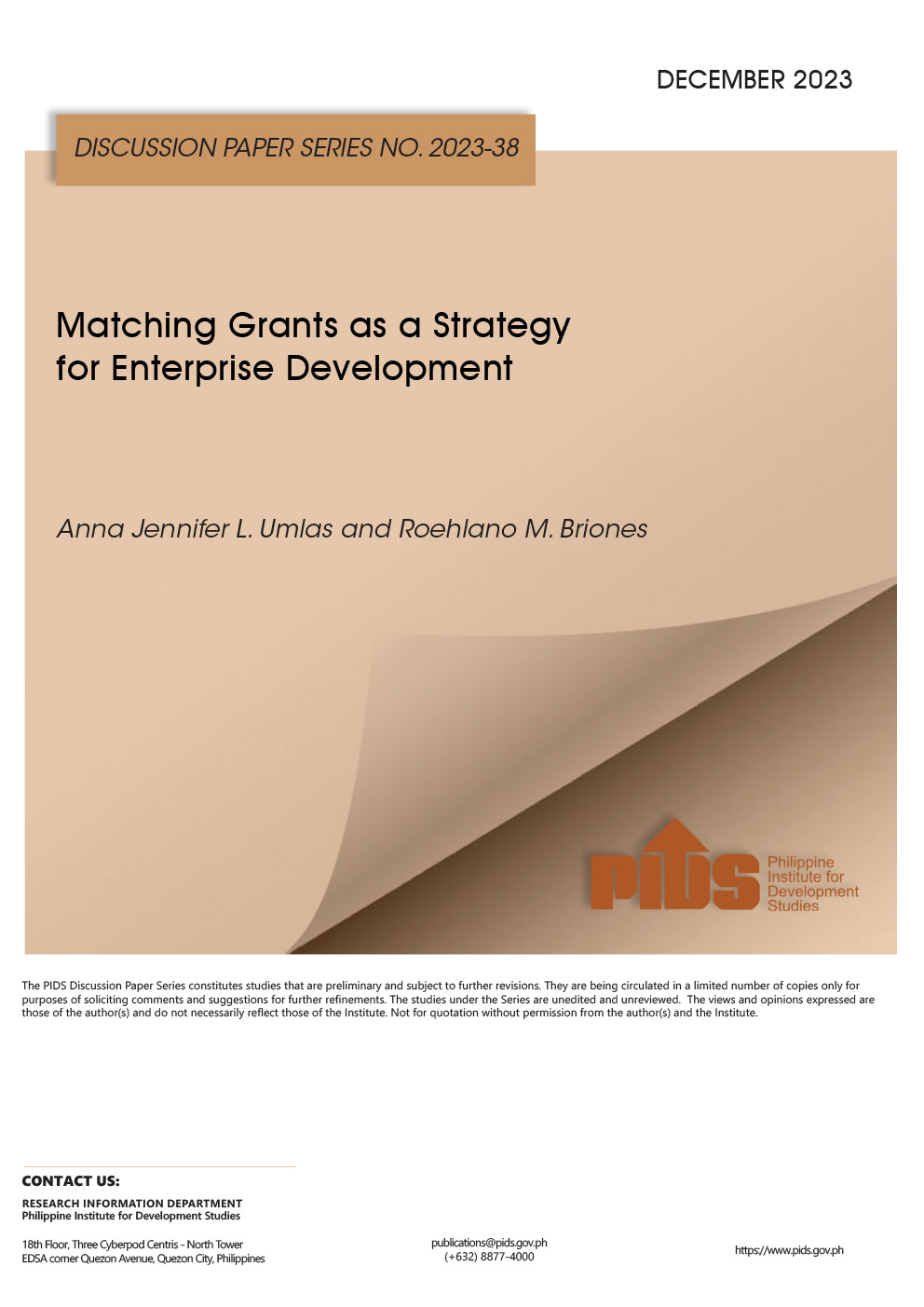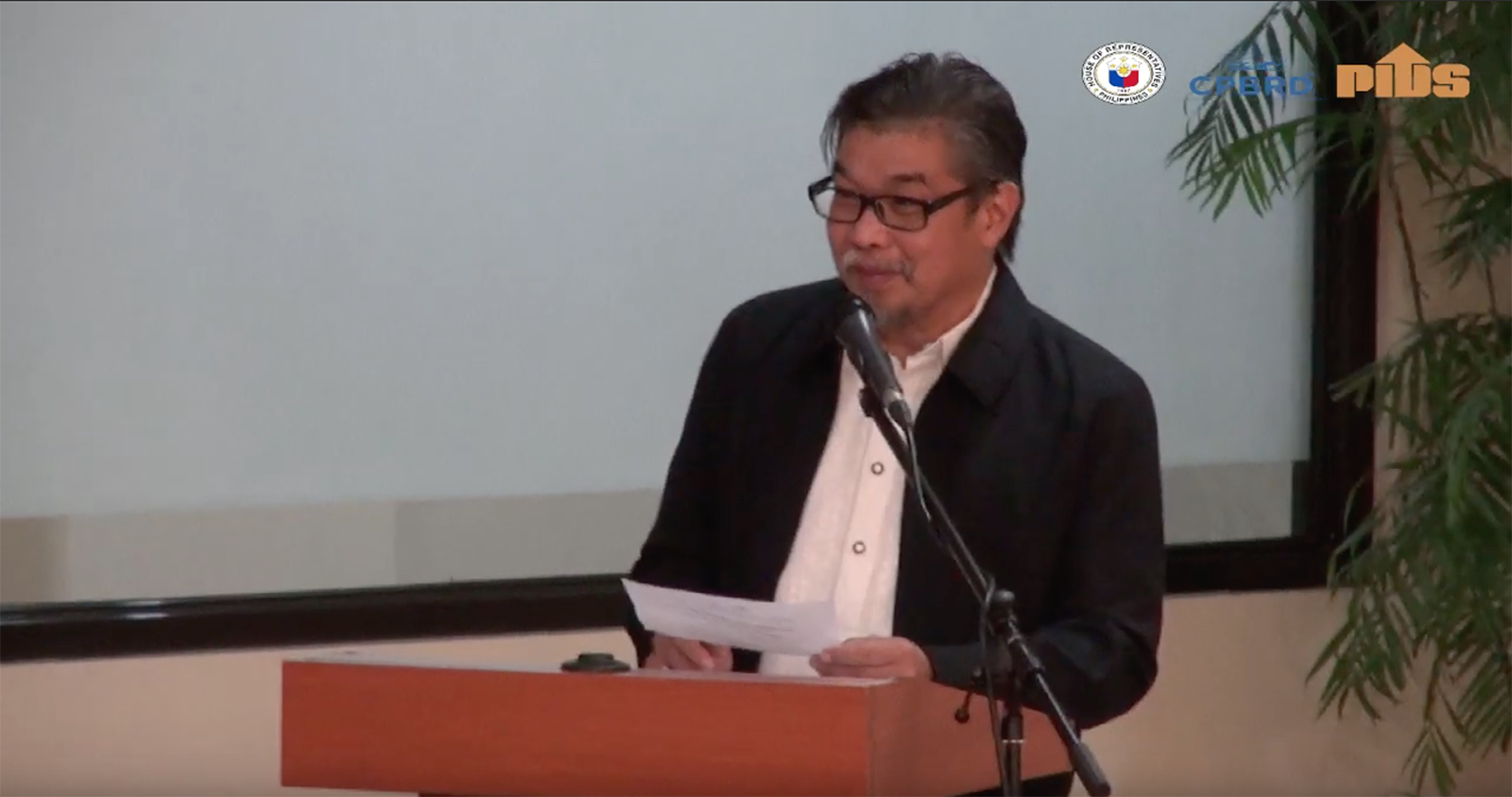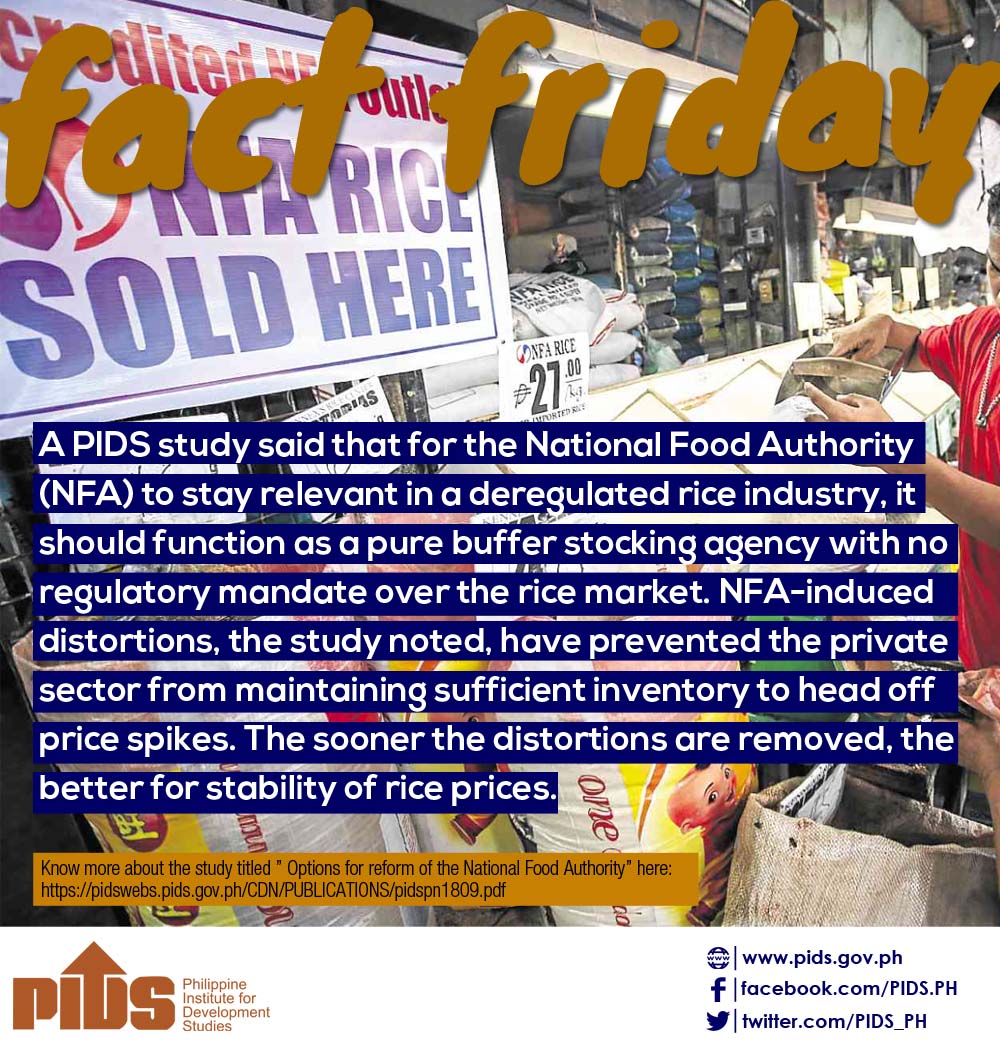The Senate is keen on removing the power of the National Food Authority (NFA) to import rice so it could focus on purchasing local paddy once the quantitative restriction (QR) on the staple is scrapped.
Senate Committee on Agriculture and Food Chairman Sen. Cynthia A. Villar said the current mandate of the NFA creates an “intentional confusion” because it could either import rice or procure local palay.
To remove this confusion, Villar said, the Senate version of the rice tariffication bill would only limit the NFA from procuring local palay to beef up its buffer stock.
There is an intentional confusion whether you will buy from farmers or you will import. So, we are removing the intentional confusion because you cannot import anymore [under the rice tariffication bill],” she said during the budget hearing of the Department of Agriculture on Thursday.
The only thing you can do now is to buy from farmers so that there will be no intentional confusion. Because you are so confused whether you will buy from farmers or import rice,” Villar added.
Villar, who is a coauthor of the rice tariffication bill at the Senate, said senators are targeting to approve the measure on second reading next week. A certification that the measure as urgent from Malacañang would speed up the approval process, she said.
Under Senate Bill 1998—the bill that seeks to convert the rice QR into tariffs—the NFA would be only allowed to undertake direct rice importation when the local production is not sufficient “for the purpose of maintaining the required buffer stock to ensure rice security.
Economic managers, such as Socioeconomic Planning Secretary Ernesto M. Pernia, have earlier said “the NFA has no place in rice trade.
Pernia said this is actually the aim of the rightsizing of the national government bill, which is included in the list of the Duterte administration’s legislative agenda.
The NFA should really just focus on ensuring adequate buffer and regulation [of the market]. They should no longer be involved in buying [and] trading,” Pernia told the BusinessMirror in February.
Economic managers are keen on removing the QR on rice to tame inflation, which has accelerated in recent months due to the implementation of the Tax Reform for Acceleration and Inclusion.
The government expects the increase in rice supply—with the scrapping of the QR—to cut the price of the staple by P7 per kilogram.
Congress is racing to amend Republic Act (RA) 8178 to lift the QR by the end of the year, as Manila is under pressure from its trading partners at the World Trade Organization to scrap the nontariff measure. The special waiver on rice granted by the WTO had already lapsed on June 30, 2017.
Apart from scrapping the QR, the rice tariff bill seeks to set up a rice enhancement competitiveness fund (RCEF) that will help farmers cope with the removal of the quotas.
Removing the QR on rice by amending RA 8178 would allow the government to generate P27 billion annually, according to a paper published by the Philippine Institute for Development Studies (PIDS).
The PIDS paper noted that the projected revenues would come from the importation of some 2.2 million metric tons of rice at a 35-percent tariff. Purchases of imported rice are expected to increase once the government removes the QR.









